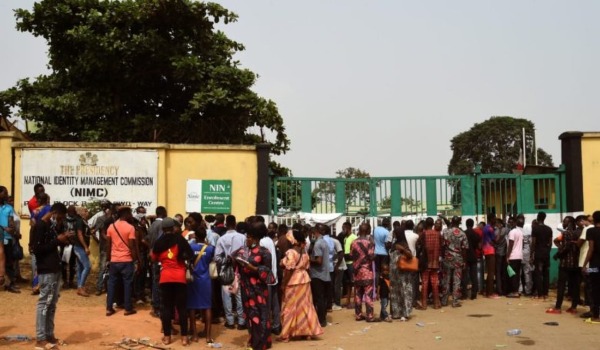FG sets minimum admission age for tertiary institutions at 16; sets new cut-off marks for 2025/2026 session
Nigerian government has officially announced 16 years as the minimum age for admission into tertiary institutions across Nigeria, beginning with the 2025/2026 academic session.
This came as the government warned that any admission conducted outside the Central Admission Processing System (CAPS) would be illegal and perpetrators would be prosecuted.
Minister of Education Dr. Tunji Alausa said this on Tuesday while declaring open the ongoing Policy Meeting of the Joint Admissions and Matriculation Board (JAMB), in Abuja.
Dr. Alausa stated that institutions must comply with the new age requirement, which replaces the previously proposed 18-year age limit introduced by former Education Minister, Prof. Tahir Mamman, during last year’s meeting.
In the same meeting, stakeholders approved 150 as the minimum Unified Tertiary Matriculation Examination (UTME) score for admission into universities. Polytechnics and colleges of education and agriculture adopted 100 as their respective cut-off marks, while colleges of nursing settled for 140.
JAMB Registrar, Prof. Is-haq Oloyede, reiterated that these scores are minimum benchmarks and institutions are not permitted to admit candidates below the approved thresholds.
“The minimum admissible scores for admissions for the next academic session have been fixed at 150 for universities, 100 for polytechnics, 100 for colleges of education and 140 for colleges of nursing sciences by the stakeholders,” he said
He noted that the policy decision was aimed at ensuring fairness, access, and quality across the board.
“This policy reflects the reality of our education system and the need to align admission processes with merit, equity, and capacity,” he said.
The stakeholders also agreed on admission deadlines of October 31, 2025, for public universities, November 30, 2025, for private universities, while December 31, 2025, was fixed as the deadline for polytechnics and colleges of education.
Alausa, who chaired the policy meeting, declared that any admission into tertiary institutions conducted outside the Central Admissions Processing System will be deemed illegal.
Alausa warned universities, polytechnics, and colleges of education across the country against illegal admission.
He said institutions and individuals involved in such practices would be prosecuted and severely sanctioned, including the withdrawal of their operating licenses.
“Any admission conducted outside CAPS, regardless of its intentions, is illegal. Both institutions and the candidates involved in such practices will be held accountable.
“Sanctions may include withdrawal of institutional assets and prosecution of culpable officers or governing council members,” he said.
CAPS, introduced in 2017, automates the admission process to eliminate human interference and administrative bottlenecks.
Alausa, however, reiterated the government’s commitment to strengthening transparency, fairness, and accountability in the nation’s tertiary education system.
He explained that while the responsibility for initiating admissions rests with the academic boards of each institution, JAMB, as a statutory regulatory body, is mandated to oversee and regulate the process to ensure fairness and equity.
The minister urged vice-chancellors, rectors, provosts, and governing councils to intensify oversight functions to prevent unauthorised practices.
He assured that the ministry would monitor compliance closely in collaboration with JAMB.
The minister also reaffirmed the policy mandating the integration of the National Identification Number into the JAMB registration process.
“The NIN requirement has proven vital in safeguarding the integrity of our admission system by curbing identity fraud and multiple registrations. Any abuse of the NIN system will be identified and punished,” he said.
He highlighted the need for data-driven policies in the admission processes.
The minister also presented statistics showing a mismatch between available admission quotas and actual student intake across many programmes, especially in agriculture, education, engineering, and the health sciences.
“We have capacity, but we are not admitting enough students. We need to start closing the gap so that more children can access tertiary education,” he said.
He also criticised the proliferation of underutilised institutions, revealing that over 120 universities in Nigeria received fewer than 50 applications in the current admission cycle.
“The problem is not about access; it’s about alignment and capacity. We don’t need to open new tertiary institutions in every ward. Instead, we must expand and strengthen the capacity of existing ones,” he said.




